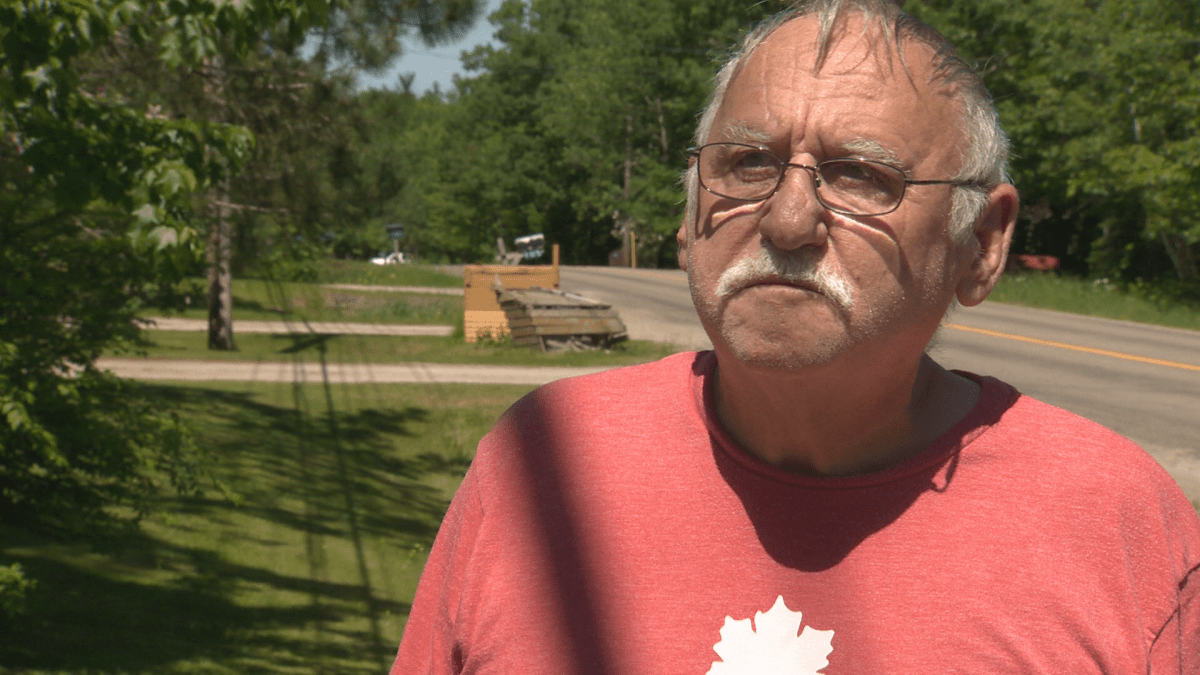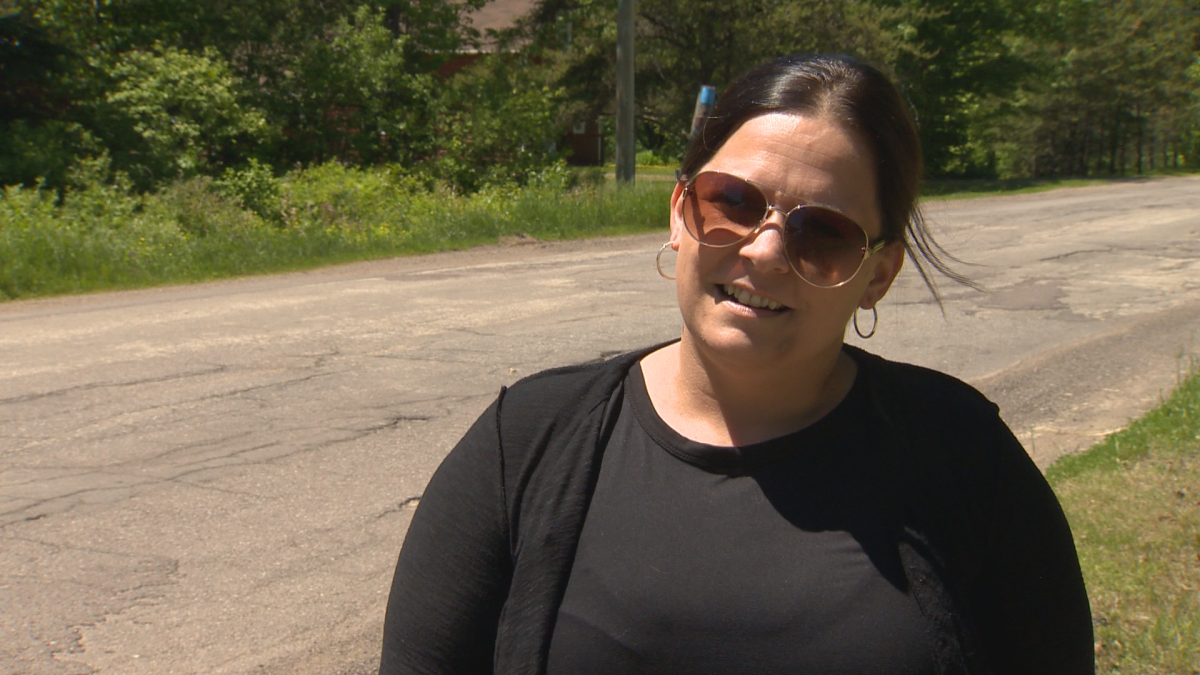The mayor of a New Brunswick village says he’s had enough of maintaining a portion of a problematic road, and is calling on the province to step in.

Petitcodiac Mayor Jerry Gogan says there’s been a number of complaints from residents about Route 905’s condition. He says the route has been an issue for years, and drivers are now going outside the lines to dodge potholes.
The stretch of road, near Route 1 and 106, is provincially owned, but the village maintains it as part of a deal with the New Brunswick government.
The village has continued to patch the road, but Gogan says a long-term solution is needed immediately.
“The road is done,” he says. “It needs to be milled and resurfaced properly.”
READ MORE: New Brunswick tops list of CAA’s worst roads in Atlantic Canada
Gogan says their municipal budget is just over $1.5 million, but estimates indicate the work could cost between $250,000 and $500,000.
“We just can’t afford it on our own,” he says.
The section of road has been in their five-year plan with the province, Gogan says, but they’re not getting any help. He says it’s a road with a lot of truck traffic, and it could be especially dangerous for motorcyclists.
“We just had a couple of tours this past weekend,” he says. “Thank heavens that nobody got into one of those holes and caused an accident.”
Residents have had enough of the conditions.
“They’re deplorable,” says Aubrey Trites, a resident who lives near that section of road. “We’ve been complaining and complaining and complaining.”
Michelle Bannister, a volunteer firefighter, says she spent about $500 to fix her vehicle after hitting a pothole. But that’s only one of her concerns.
Someone on a bike was forced in the ditch, she says, because motorists are driving on the shoulder of the road to avoid the potholes.
“It’s kind of a blind nook, so the car in front of me came just over the hill, the little guy was coming up the hill, he went into the ditch (and) we pulled over,” she says.
“It’s definitely the worst case scenario – that someone’s going to get hurt or killed.”
The road made the Canadian Automobile Association’s Worst Roads in the Atlantic region for 2019.
WATCH: Fluctuating temperatures creates pothole problem in Saint John

A statement from the province says work will be done on Route 905 this construction season, but not within village limits, which is where the mayor and residents are speaking about.
“With respect to the Municipal Designated Highway Program, DTI evaluates municipal proposals using the Asset Management Principles, and this road was not selected for capital work during the process this year,” said the statement from Paul Bradley, the acting director of communications for the Department of Transportation and Infrastructure. “Asset management is intended to identify priorities for capital work, while taking the politics out of spending.”
The statement also says the Department of Transportation and Infrastructure recognizes the needs of the road and will take them into consideration for future work.
“It’s not safe,” Trites says. “Somebody’s going to get hurt. When somebody gets hurt, well, maybe we’ll fix it (then), when it’s too late.”







Comments